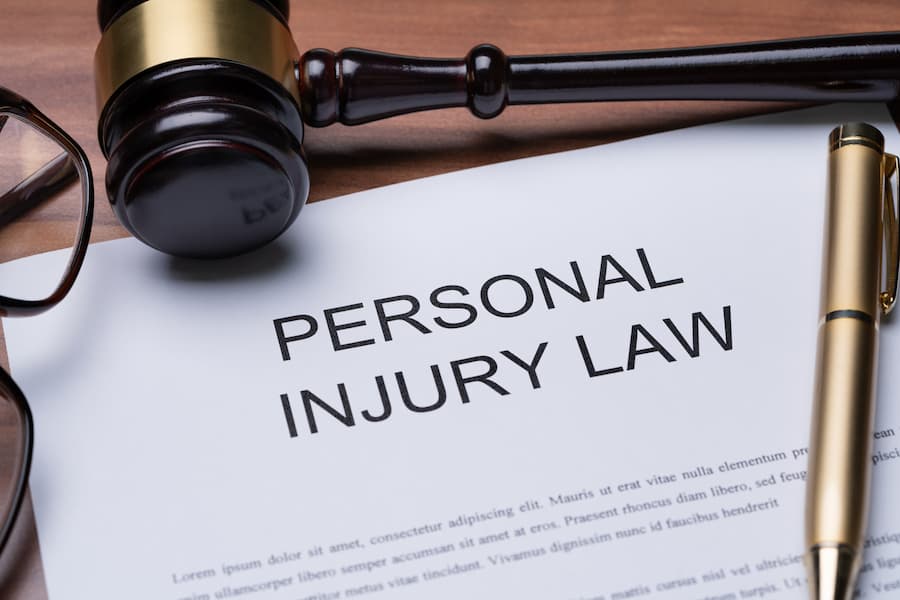Making one’s way through a personal injury lawsuit can seem as intricately choreographed as a dance. Attention to each motion is essential to lead to success. Every step of the way must be methodically taken and precisely timed.
Only then can one expect the overall outcome to be favorable. Successful navigation of something as complex as a personal injury lawsuit is akin to sweeping across a dance floor with perfect footwork.
This article takes you through the key steps in a personal injury lawsuit and highlights a lawyer’s critical role at each stage.
Step 1: Sending a Demand Letter
A demand letter is typically the first formal action in a personal injury lawsuit. It is a comprehensive document outlining the nature and extent of your injuries, providing a detailed account of the incident’s circumstances.
Additionally, it specifies the compensation you seek, considering medical expenses, lost wages, pain and suffering, and other relevant damages. This meticulously crafted letter is sent to the opposing party or insurance company, setting the stage for further legal proceedings and negotiations.
A lawyer’s expertise is invaluable in drafting a compelling demand letter. They’ll know what information to include, how to present it persuasively, and how to negotiate effectively with the opposing party’s insurance company or legal team. A well-crafted demand letter can set a strong foundation for your case and potentially lead to an early settlement.
Step 2: Filing a Complaint

If the demand letter doesn’t result in a satisfactory resolution, the next step is filing a complaint with the court. This document initiates the lawsuit and describes your claims against the defendant. It provides a comprehensive account of the alleged wrongdoing, specifying the legal grounds and supporting evidence.
By filing a complaint, you formally request the court’s intervention and seek a fair resolution. Filing a complaint involves following specific legal procedures and guidelines. An experienced lawyer will ensure these rules are adhered to, avoiding potential setbacks that could jeopardize your case. They’ll also use their legal knowledge to build a robust argument in your favor.
Step 3: Discovery
The discovery phase is a crucial and pivotal part of the lawsuit, where both parties gather evidence to build their cases. It involves various methods, such as written questions known as interrogatories, where each side poses specific inquiries to the opposing party.
Additionally, depositions come into play, which are oral questioning sessions conducted under oath, allowing attorneys to extract valuable information from witnesses or parties involved.
Furthermore, documents are requested to obtain relevant records and paperwork that provide valuable insights and support arguments. Overall, the discovery phase is a comprehensive process that ensures a thorough examination of the evidence and plays a significant role in shaping the lawsuit’s outcome.
A lawyer can guide you through the intricate discovery process, helping you answer interrogatories, prepare for depositions, and request relevant documents from the opposing side. Their strategic approach to collecting and presenting evidence can significantly strengthen your case.
Step 4: Pretrial Procedures
Before the trial begins, there are several critical pretrial procedures to navigate. These procedures play a crucial role in establishing the framework and rules for the trial, ensuring fairness and justice.
They also determine the admissibility of evidence, ensuring that only relevant and reliable information is presented during the trial proceedings. By carefully navigating these pretrial procedures, legal professionals can effectively set the stage for a fair and just trial.
During pretrial procedures, your lawyer can advocate for your interests, arguing motions that could limit the opposition’s evidence or even get the case dismissed. Their expertise can help shape the trial in your favor.
Step 5: Trial Litigation

If a resolution can not be achieved during the negotiation phase, the case advances to a trial. All parties can put their arguments, evidence, and legal tactics before a judge or jury.
The judge or jury meticulously assesses the information provided, considers the strengths of each party’s case, and finally determines the verdict of the trial. This procedure guarantees a comprehensive and impartial analysis of the facts, leading to a fair conclusion.
In trial litigation, a lawyer is indispensable. They’ll present your case, cross-examine witnesses, and counter the opposition’s arguments. Their ability to communicate your story persuasively can significantly influence the judge or jury’s decision.
Step 6: Statute of Limitations
Adhering to the statute of limitations is paramount in personal injury cases. It represents the legal timeframe within which a lawsuit must be filed after an injury occurs. Failing to file within this limit can result in the case being dismissed, regardless of its merits. Therefore, it’s crucial to consult a personal injury lawyer promptly after an injury. These legal professionals understand the specific deadlines relevant to your case and can ensure compliance.
Prompt consultation serves multiple purposes: It allows for timely evidence collection, preserves crucial witness testimonies, and gives your attorney ample time to build a strong case. Waiting too long can hinder the effectiveness of your lawsuit, making early legal guidance indispensable. This is why you should immediately contact https://www.unionlawfirm.com/.
Step 7: Insurance Negotiations
Personal injury lawyers often serve as skilled negotiators in discussions with insurance companies. These negotiations are vital because they can lead to fair settlements without the need for a protracted lawsuit. Lawyers leverage their experience to advocate for your best interests, striving to secure compensation that covers medical expenses, lost wages, and pain and suffering.
These negotiations are typically complex, involving legal intricacies and assessments of liability. A skilled attorney can assess the value of your case, engage in effective communication with insurance adjusters, and work towards a resolution that avoids the uncertainties of a trial. Their expertise is instrumental in ensuring you receive a just settlement without unnecessary delays.
What to Look for in the Best Personal Injury Lawyer
The steps in a personal injury lawsuit is a detailed and intricate legal procedure that demands scrutiny and proficient legal counsel. When selecting a personal injury attorney, look for someone with a wealth of experience managing comparable cases, a notable history of triumphs in settlements or court decisions, and exceptional communication abilities.
Finding a representative who will emphasize your welfare and offer empathetic assistance throughout the journey is vital. Proper legal counsel can enhance the probability of securing an equitable and rightful settlement in your personal injury lawsuit.
Therefore, conducting comprehensive research and making a thoughtful decision when picking a personal injury attorney to stand for you is of paramount importance. Engaging a respected and proficient lawyer can significantly influence successfully maneuvering a personal injury lawsuit and attaining the rightful compensation you merit.
Remember that prompt action is crucial in such scenarios, so it’s paramount to pursue legal advice following your injury promptly. With their proficiency and direction, you can concentrate on recuperating from your injuries while they manage the legal facets of your case.

A Look At The Steps In A Personal Injury Lawsuit – In Conclusion
The steps in a personal injury lawsuit are crucial and require careful navigation. Every stage demands attention to detail, from the initial consultation to gathering evidence, negotiating with insurance companies, and potentially going to trial.
A seasoned attorney possessing a profound comprehension of the legal system can offer priceless counsel throughout this intricate journey. Their guidance ensures you are thoroughly prepared for what lies ahead, augmenting your prospects of achieving a successful resolution.
With a skilled advocate, you can confidently navigate every stage of your legal journey and pursue the rightful compensation you deserve.




